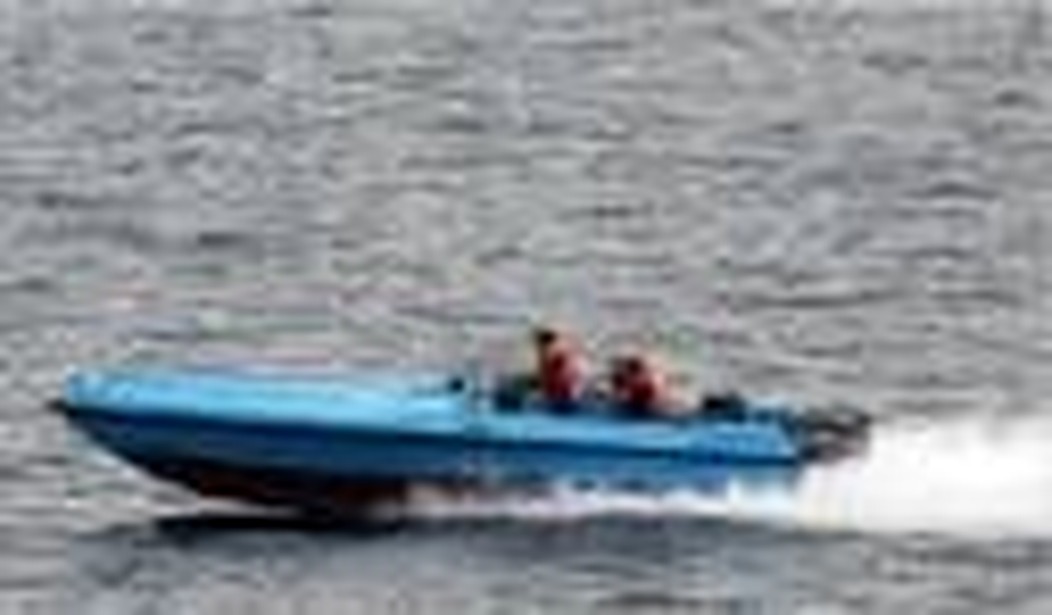The release of the recent NIE report on Iran’s nuclear program, together with General Petraeus’ declaration that Iran has stopped supplying weapons to anti-U.S. Shiite militants in Iraq, was interpreted as a sign of improvement in Tehran-Washington relations by many Iran-watchers. The Iranian press seemed to be particularly excited. Most notable were those representing Ayatollah Rafsanjani, who wants better relations with the West. One of his outlets got completely carried away by the new thaw. This was shown by an article in Entekhab News, which quoted Russian and Swiss sources claiming that U.S. Secretary of Defense Robert Gates had secretly met with Ahmadinejad to discuss regional developments. Meanwhile, some Iranian officials, including Iran’s Supreme Leader, decided to reciprocate what they viewed as U.S. efforts to improve relations. This was seen in Ayatollah Khamenei’s statement last week in the city of Yazd that relations between Iran and the U.S. will not be broken “forever.”
However, in a single move, the nascent improvements between the two countries were pushed aside, and suspicion and recrimination returned to the forefront of Iran-U.S. relations.
The new crisis centers on reports from the U.S. that on Sunday, January 6, Iranian Revolutionary Guard Corps (IRGC) boats buzzed three U.S. warships in the Strait of Hormuz in an aggressive manner. The U.S. presented its case in a video that was released by its Department of Defense. The video also showed the USS Hopper crew asking the IRGC boats to identify themselves and their intention. However, there was no response. The only voice contact from the IRGC side was a message threatening the U.S. navy ship, saying that it is going to explode in a “couple of minutes.”
Immediately after that, Iran released its own video, which completely contradicted the U.S. version. In the Iranian video, the IRGC boats are seen politely communicating with the U.S. ships. Furthermore, unlike the U.S. video, the Iranian report showed the Iranian boats as stationary. They were not behaving in an aggressive manner in any way, shape, or form. To make a difficult case more confusing, two days after the incident, the U.S. Fifth Fleet said that it had “no way to know” that the explosion threat came from an Iranian boat.
For now, the international community should be thankful that the U.S. warships held fire. Even if there are doubts about the Iranian warning that the ships would explode, what cannot be ruled out is the way in which the IRGC boats were playing chicken with the U.S. ships. This was very dangerous. The U.S. navy has been on tenterhooks since the attack on the USS Cole in Yemen, which was also carried out by a small boat. Furthermore, in the 1980s, Iran used many such small boats to attack U.S. warships in the Persian Gulf. Therefore, from what can be seen, the U.S. had every reason to protest and to feel threatened.
Judging by the past behavior of Iran’s Supreme Leader, he should frown upon the IRGC’s recent action, as it could have dealt a heavy and unnecessary blow to Iran’s recent diplomatic achievements . Khamenei is a calculating strategist. To him, international opinion and consensus are important, much more important than they were for Ayatollah Khomeini, his predecessor. This is why Iran has been so successful in its foreign policy adventures in Lebanon and Iraq during his term, whereas during Khomeini’s term Iranian foreign policy achieved far less.
However, when it comes to dealing with the international community, Iran’s president is not so careful. This is because Mahmoud Ahmadinejad’s position inside Iran is in a downward spiral. Inflation is twice as high as it was when he took office. He has failed miserably in his promises to cut unemployment and corruption. Meanwhile, Ali Larijani, his rival, seems to be back in action. His recent trips to Egypt and Syria, as the representative of the Supreme Leader, were taken by Ahmadinejad’s supporters as a challenge to the president’s efforts to control Iran’s foreign policy.
With parliamentary elections coming up on March 14, 2008, Ahmadinejad needs to do something to improve his position. Otherwise, his supporters would lose badly, as they did in the municipal elections of December 2006. One factor which could boost his position is a conflict with the U.S. In fact, this could be the only savior of his failing presidency. The recent incident in the Persian Gulf could have been a move by Ahmadinejad and his IRGC allies, who are also disappointed with Ayatollah Khamenei’s order to reduce their anti-U.S. activities in Iraq.
With eighteen months to go before Mahmoud Ahmadinejad stands for reelection as president, it is possible that he and his IRGC allies will try similar provocative moves, especially against Israeli and U.S. interests. Jerusalem and Washington should be careful not to fall into Ahmadinejad’s trap. Meanwhile, Ayatollah Khamenei should ensure that his president does not take his country into an unnecessary conflict for the sake of cheap electioneering.
Meir Javedanfar is the co-author with Yossi Melman of “The Nuclear Sphinx of Tehran – Mahmoud Ahmadinejad and the State of Iran.” He runs Middle East Economic and Political Analysis (Meepas)








Join the conversation as a VIP Member